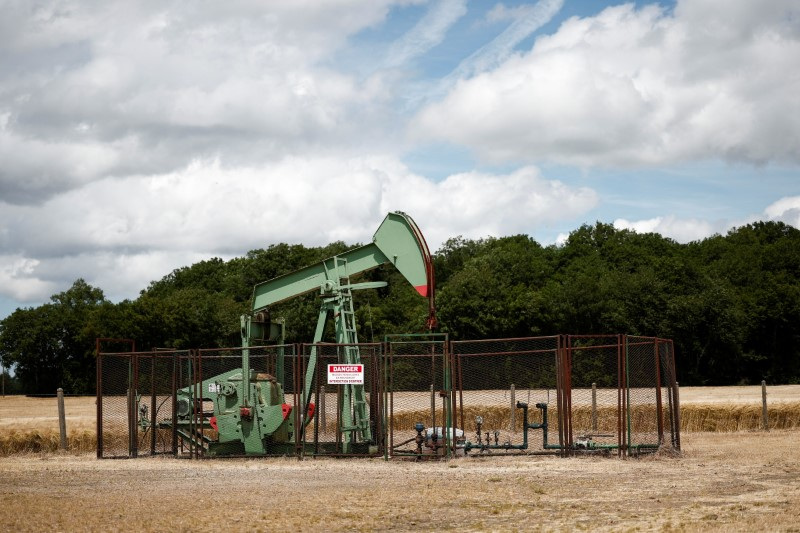By Paul Carsten and Robert Harvey
LONDON (Reuters) -Oil costs rose for a fifth consecutive session on Monday, extending good points from the earlier week’s greater than 3% rise, as U.S. recession fears eased and Center East provide dangers supplied help.
futures have been up 88 cents, or 1.1%, at $80.54 a barrel by 1319 GMT whereas U.S. West Texas Intermediate crude futures rose $1.06, or 1.38%, to $77.90.
“Support is coming from last week’s better than expected U.S. data, which eased fears of a U.S. recession,” mentioned IG markets analyst Tony Sycamore.
“There is also a great deal of anxiety about when Iran might look to avenge Israel’s assassination of key Hamas and Hezbollah leaders. Feels like a matter of when, not if.”
Iran and Hezbollah have vowed to retaliate for the assassinations of Hamas chief Ismail Haniyeh and Hezbollah army commander Fuad Shukr.
“The market is still waiting for Iran’s response,” mentioned Warren Patterson, ING’s head of commodities analysis.
As well as, the Israeli incursion into Gaza intensified on Saturday when an airstrike on a college compound killed a minimum of 90 folks, in line with the Gaza Civil Emergency Service, although Israel mentioned the dying toll was inflated. Hamas forged doubt on its participation in new ceasefire talks on Sunday.
Brent gained 3.7% final week whereas WTI rose by 4.5%, buoyed by financial information and elevated hopes of a reduce to U.S. rates of interest.
Three U.S. central bankers mentioned final week that inflation seemed to be cooling sufficient for the Federal Reserve to chop rates of interest as quickly as subsequent month.
China’s shopper costs rose quicker than anticipated in July, and U.S. weekly jobless claims fell greater than anticipated final week.

On Monday Russia evacuated civilians from elements of a second area subsequent to Ukraine after Kyiv elevated army exercise close to the border solely days after its largest incursion into sovereign Russian territory for the reason that begin of the battle in 2022.
Undermining value help, OPEC reduce its forecast for international oil demand development in 2024, citing weaker than anticipated information for the primary half of the 12 months and softer expectations for China. It additionally trimmed its expectations for subsequent 12 months.




